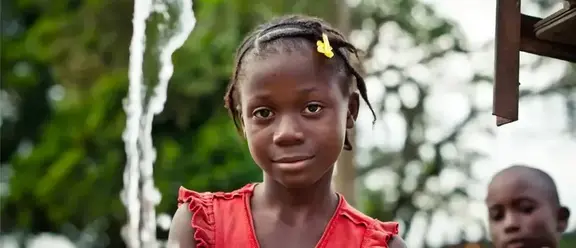FAQ
Donations are voluntary contributions in the form of monetary or in-kind donations (also called monetary or in-kind contributions). For donations to be tax-deductible, they must be made to a tax-exempt or charitable organization. These can include churches, foundations, political parties, and other non-profit organizations or associations. Terre des Hommes is a non-profit organization.
Individuals, foundations, companies, and associations can claim donations as tax-deductible expenses. Terre des Hommes as a non-profit charitable organization, issues donation receipts.
To ensure your donation is recognized as tax-deductible by the tax office, you need a donation receipt, also known as a donation certificate. For annual donations of €20 or more, you will automatically receive a donation receipt from Terre des Hommes for all donations made during that calendar year. This will be sent to you by mail in February of the following year. The donation receipt includes, among other things, the total annual donation amount and serves as proof that the donation is used exclusively for tax-deductible purposes. It should be included with your tax return as documentation of your donation.
A donation receipt cannot be issued for the total amount donated through fundraising, as every donor has the right to request one. Individuals who participated in a fundraising campaign can therefore request a receipt for the specific amount they donated. Consequently, a donation receipt cannot be issued for the total amount donated.
In principle, donations in kind are tax-deductible. However, Terre des Hommes Germany only accepts donations in kind in exceptional cases and after prior consultation. Locally needed supplies are generally purchased by our project partners themselves in order to support the local economy.
If you have moved or changed your bank, you can inform our donation service about these changes at any time so that they can be taken into account in the future:
Email: spenden@tdh.de
Telephone : +49 541 7101-128
Address: Ruppenkampstr. 11a, 49084
If you have given us direct debit authorization for a regular donation, you can submit your change requests to our donation service via the following channels:
Email: spenden@tdh.de
Online: online
Telephone: +49 541 7101-128
Mail: a , 49084 Osnabrück
Many people sponsor a child because they want to provide concrete help: supporting a child in Africa or Latin America, securing their education, and thus investing in their future. The advantages seem obvious. The donor knows exactly where their money goes and, with the personal connection to their sponsored child, assumes "real responsibility." Sometimes they even receive letters from the sponsored child.
The staff at Terre des Hommes also receive inquiries about child sponsorships every month. People are often disappointed because we do not arrange or advertise child sponsorships.
As a children's rights organization with decades of experience Terre des Hommes has made this important decision consciously. In our view, child sponsorships are incompatible with the public presentation of our proven principles of effective and sustainable development cooperation.
Aid must be geared towards the community
Back in the seventies and eighties, there was already a broad debate among aid organizations about the practice of arranging sponsorships. The main criticism at the time was that..
- A sponsorship is individual case assistance that does not address the causes of poverty and development problems
- Sponsorships isolate children and create envy,
- Children placed in homes as part of sponsorships would destroy family and social structures,
- Sponsorships cause a high administrative burden and are therefore expensive.
For these reasons Terre des Hommes decided as early as 1975 – not least at the request of its project partners – to discontinue sponsorship programs.
There is now widespread agreement that effective aid must be community-oriented and promote self-help. Only an equal partnership in development can be successful in the long term. A focus on individual cases has little place in this understanding. A simple example: instead of enabling just one child to attend school, it makes more sense to renovate a village school and train and develop teachers.
Sponsorships or project funding?
Child sponsorships appeal to our emotions, our protective instincts, and our willingness to donate. This becomes problematic when advertising using them creates a false impression of the aid provided on the ground. Terre des Hommes cannot endorse individual sponsorships when, in practice, project funding is being provided This is one of the reasons why we do not advertise with sponsorships, but instead leave no doubt that we always support groups and communities of people – be they students, village communities, or individuals who advocate for the rights of others. Terre des Hommes holds the DZI Seal of Approval, which confirms the responsible use of donations. One important criterion for awarding the seal is "true, unambiguous, and objective advertising in words and images." Terre des Hommes is committed to this criterion in its reporting and choice of advertising materials.
Aid must not promote competition
Furthermore, Terre des Hommes emphasizes in its public relations work that aid is provided in a way that does not promote competition among recipients. It is particularly important that..
- The commitment of the people involved in the projects is evident. They are not recipients of charity, but thanks to our support, they can take their destiny into their own hands.
- Local partner organizations, with whom we work closely on the ground, are not neglected in this presentation.
- The causes of poverty and conflict will also be identified.
Terre des Hommes is not concerned with quick, media-effective successes, but with effective and sustainable change.
More information
Annette Scheunpflug, a professor of education at the Otto-Friedrich University of Bamberg, has presented a critical assessment of the public portrayal of child sponsorships in a recent study. Scheunpflug, who holds the Chair of General Education, investigated the influence of advertising for child sponsorships on the image of development cooperation in the German public sphere.
Your contact person

Jan-Hinnerk Voss
Donation support
